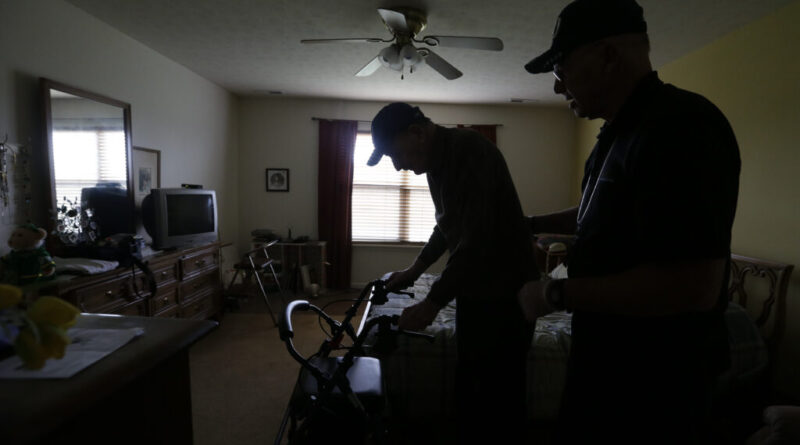The new Medicaid law is expected to lower wait times for home care, raising the wages of caregivers
CProviders for seniors and people with disabilities may see a decline in their income in the coming years, due to the upcoming legislation of the Centers for Medicare and Medicaid Services.
This new law brings significant changes to Medicaid programs across the country, including fee-for-service and managed care delivery systems. One of the most notable changes is working in the home and community services (HCBS) industry. CMS will now require home care providers to use 80% of the Medicaid payments they receive for caregiver compensation.
The legislative changes stem from a labor shortage that has led to long wait times for home care, with nearly 700,000 Americans languishing on waiting lists each year since 2016, according to one estimate . The Covid-19 pandemic, rising costs of home health care and rising wages in some industries have led to layoffs for direct support workers, including home health aides and personal care aides. who help people with daily tasks. Nearly 80% of providers reported turning away from new appointments last year due to ongoing staffing shortages, according to a recent report from ANCOR, a nonprofit that works improving the lives of people with intellectual and developmental disabilities. CMS hopes the new law will stabilize the industry and help caregivers, many of whom are immigrants and people of color.
“This legislation should help ensure that older people and people with disabilities who need help with daily activities can receive high-quality support and that they and their carers are treated with dignity,” the said Natalie Kean, director of health advocacy for the nonprofit. Justice in Aging.
More than seven million seniors and people with disabilities rely on home and community services, according to a fact sheet released last week by the White House. Disability activists have long wanted to keep these people in communities rather than institutions. This new regulation of how Medicaid payments to health care providers are structured is part of this broader shift toward home care over institutional care.
“We hope this will increase access to critical HCBS services that allow people with disabilities to live in their communities while improving historic inequities in how workers are paid.” ,” said Jennifer Lav, senior attorney at the National Health Service Act, in a statement. .
However, the new law has received pushback from donors. When CMS made its first proposal last year, the agency received many comments criticizing the 80% mandate, suggesting that it would be costly to funders and that 20% of payments would not cover high donor fees or other expenses. Providers also said that the decision would be “too complicated to implement” and that CMS does not have data to support the 80% mandate. After the agency released the final version last week, the National Association of Home Care and Family Physicians blasted the law, calling the policy “flawed” and “disruptive.”
“We all agree that more needs to be done to support direct care workers; however, this policy will make things worse, not better,” NAHC President William Dombi said in a statement.
Lydia Dawson, vice president of government relations at ANCOR, is pleased that CMS is addressing the workforce shortage, but doubts these changes will fully address the industry’s workforce issues. He said that Medicaid reimbursement rates must be increased and that changing the pay system for caregivers would throw a financial hot potato on already overburdened providers.
“Without adequate funding in the system to attract and retain direct support workers, we are already seeing very negative impacts on donor availability,” Dawson said.
Providers have up to 6 years to demonstrate compliance with the new rules, and states have the option of granting “hardship exemptions” and giving smaller providers a lower threshold than the 80% mandate. Senators grilled Daniel Tsai, deputy administrator and director of the Center for Medicaid and CHIP services at CMS, during a Senate Energy and Commerce Committee hearing on Tuesday and suggested that these fees were are biased towards donors. But Tsai remained adamant that the law would save lives.
“[These rules] it’s going to change how tens of millions of Americans are taken care of,” he said during a press conference last week. “I just went on [a call] and participants earlier, and someone described the set of rules here as ‘disrupting the complacency that many of us have received from the Medicaid program for far too long.’ And I think that’s exactly what these laws do. “
#Medicaid #law #expected #wait #times #home #care #raising #wages #caregivers
